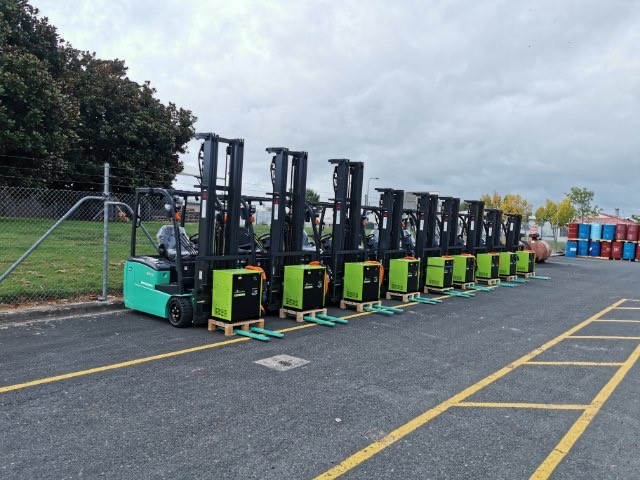Each type offers unique features, advantages, and potential drawbacks, making it essential to understand the options before deciding.
Whether you’re a homeowner looking to secure your family, or a business owner protecting valuable assets, this article investigates the pros and cons of landline, cellular, and internet monitoring systems so you can make an informed choice based on your needs, budget, and lifestyle.
Landline Monitoring
When an alarm is triggered, the security system will send a signal through the phone line to the monitoring centre, where the trained personnel assess the situation.
They then take the appropriate action by notifying the owner of the building and, if necessary, contacting emergency services. This process ensures a quick response in the event of an emergency.
Benefits
The pros of landline monitoring for alarms are that it is typically more affordable to set up compared to cellular or internet options, making it an attractive choice for homes and businesses that need to stay within a tight budget.
With lower installation and maintenance costs, landline alarm monitoring provides an entry-level solution for those who need basic security without the higher upfront expenses associated with newer technologies.
Another key advantage of landline monitoring is its power resilience. Landline alarm systems are less dependent on external power sources, meaning that in the event of a power failure, they can still function using backup power systems, such as a battery or a generator.
This makes landline monitoring a reliable option for areas where power outages are common or for those who want peace of mind that their security system will remain operational even during emergencies.
Disadvantages
However, there are some significant downsides to landline alarm monitoring that should be considered. One major con is that landline systems tend to have slower and delayed response times compared to cellular or internet-based alarm systems.
Because the signals must travel over physical telephone lines, which are prone to congestion and interruptions, there can be delays in transmitting alarm signals to monitoring centres. This delay can reduce the system’s overall reliability, especially in urgent situations where time is critical.
Another significant drawback is that landline systems are becoming increasingly outdated. With the rise of mobile phones and the decline in landline usage, fewer people and businesses are relying on traditional telephone lines, making this type of alarm monitoring less appealing.
Many service providers are already phasing out support for landline connections, and soon, they will likely become obsolete. As newer, more efficient technologies like cellular and internet-based monitoring continue to grow, it will become increasingly difficult to find reliable support and service for landline-based alarm systems, leaving them vulnerable to discontinuation.
Does Landline Alarm Monitoring work for me?
If you live in a rural area, have a stable connection, and are in a more old-fashioned building, then maybe using a landline system will work best for you.
Cellular Monitoring
Cellular alarm system is a security device in which an alarm is activated, and it utilises cellular networks to transmit alarm signals to a monitoring centre.
When a security breach or other emergency triggers the alarm, the system sends data over the cellular network, ensuring the monitoring centre is notified immediately. Once the monitoring centre receives the alert, operators assess the situation and notify the appropriate authorities.
A pro of cellular alarm monitoring is that they typically have fast communication to the monitoring centres which means that there are faster responses when a security breach occurs. This means that they can solve the problem faster, as it is getting communicated to the owners faster.
An additional pro for cellular alarm security surveillance is that it has better coverage than a landline system and so it can be a more reliable service in all areas whether rural, remote or city.
A con of cellular devices is that there are issues with privacy concerns with the possibility of hacking and unauthorised access. This is because cellular systems have the potential to be accessed through apps or internet connections.
A second con for cellular alarm monitoring is that they are limited by the range and capacity of the mobile network. So, if you are in an area particularly rurally that has a weak signal reception, the cellular alarm system might not work as well and send the signals to the monitoring system fast enough, especially if you’re in spotty coverage.
Does Cellular Monitoring work for me?
Cellular alert tracking is best suited for modern homes and businesses in the city that do not have landline access.

Internet Monitoring
Internet hazard detection is a security system that relies on an internet connection, either through Wi-Fi or a wired Ethernet connection, to transmit alarm signals to a monitoring centre. When an alarm is triggered from a break-in, fire, or another emergency, data is sent over the internet in real-time, allowing the monitoring centre to quickly assess the situation.
This system has become increasingly popular due to its efficiency and the fact that it provides a fast and reliable method of communication.
A pro of internet alarm monitoring is that a lot of systems allow you to control the system remotely through an app or web portal that can be accessed on a phone. This means that you can arm or disarm the system, view the cameras, and receive notifications from anywhere at any time. This provides convenience and ease of accessibility for you with your security system.
Following this, internet alarm detection also has the potential to have enhanced security features. These features may involve video surveillance, motion detection and smart notifications here it is able to distinguish between human movement and pet movement.
This can help reduce false alarms as it is able to recognise more before any urgent action is required and helps improve the overall security of the home or business.
However, a con for these features is that they typically require more investment in cost because having advanced features requires a higher cost than having a landline monitoring system.
Does Internet Alarm Monitoring work for me?
Internet monitoring is best suited for tech-savvy homeowners and businesses that have reliable internet connections. This system appeals to those who are comfortable with digital technology and prefer the convenience and flexibility that come with internet-based solutions.
When choosing a monitoring system for your alarm, the key is finding a balance between your security requirements, budget, and convenience. While more advanced systems like cellular or internet monitoring may offer greater protection and convenience, they also come at a higher cost.
If you’re on a budget or prefer a simpler solution, landline monitoring could be the right fit. It’s essential to prioritise what matters most to you—whether that’s professional help in an emergency, the flexibility of wireless devices, or a high-tech security system—and make sure it fits within your budget.
Ultimately, the best system is the one that ensures your safety without breaking the bank, offering peace of mind and reliable protectio


